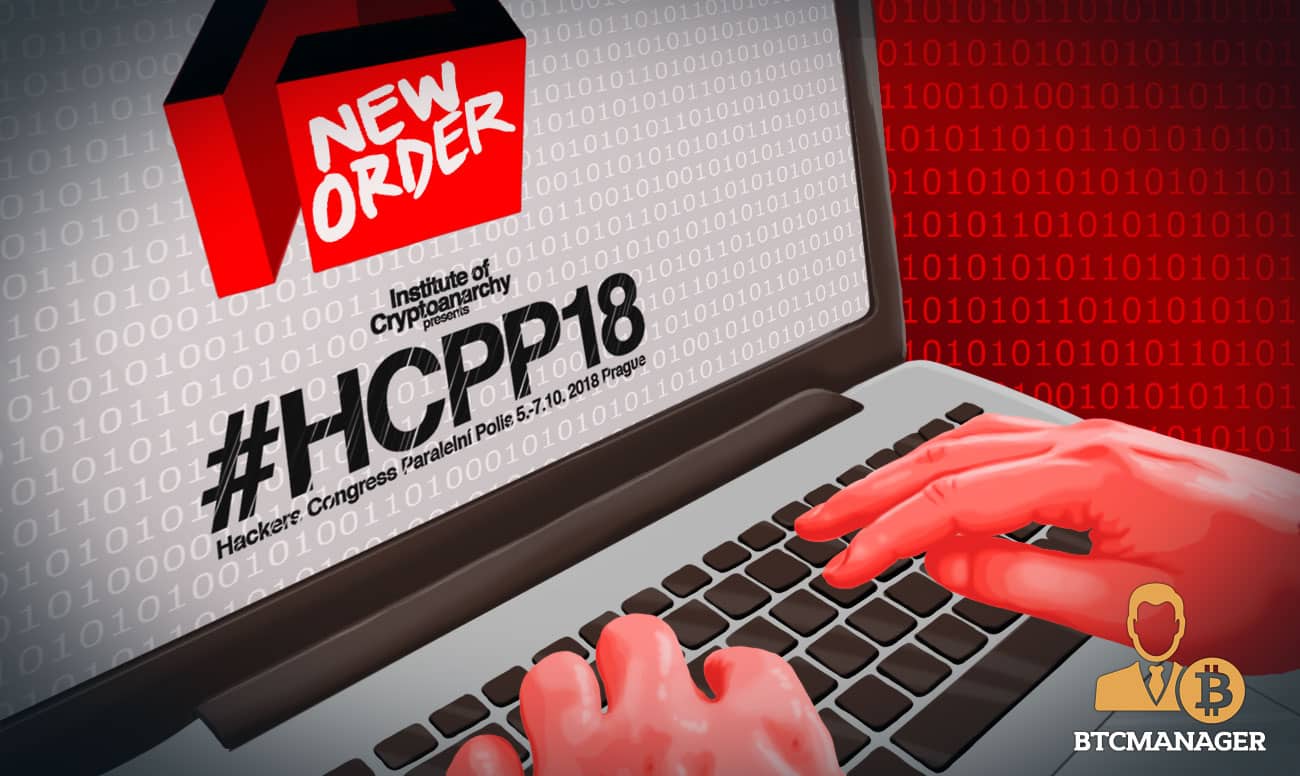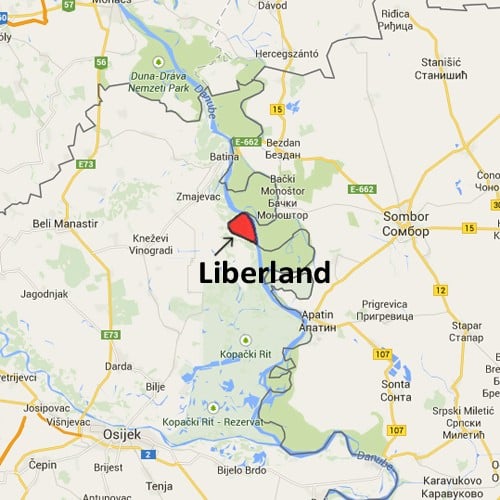The Hackers Congress Paralelní Polis 2018 Day Three Round-Up

The last day in Prague served as a final reminder of the wider reach of decentralization. If the first two days explained the more technical aspects of how best to achieve a multi-node organizational strategy, the October 7, 2018, presentations explained the philosophy on top of them. Different systems of trust have defined, razed, and rebuilt societies since time immemorial; the feelings after this year’s Hacker’s Congress filled many observers with similar revolutionary aspirations.
Transparency vs. Privacy
The applications built on top of the internet’s first iteration of a free cybernetic world also brought with it a wraith of transparency. At first, it was ushered in on red carpets and sold as a solution for corruption. Additionally, Facebook and Twitter offered a novel solution for connecting people. Threads, comments, likes, tweets, shares, and event postings reached a much wider audience than ever thought possible. The fact that each of these chunks of information could all look similar was another bonus. It became the McDonalds of communication. Blue and white messages from your long lost cousins, grandparents just hopping on their first Apple tablet, or even neighbors living next door. All of it could be corralled conveniently on two platforms.
In hindsight, this convenience is now contested if not outright detested. These platforms have become privatized data machines with huge incentives to better perfect their collection mechanisms. The transparency first offered as a solution to all the woes of our offline lives has now taken on a form never before seen. And yet, we continue to cling to transparency for revealing certain misgivings.
One of the opening panels pitted Adolfo Linares, a celebrated Libertarian lawyer from Panama, against the Czech investigative journalist Pavla Holocova. The latter worked closely (alongside a team of other journalists) to release the documents that incriminated many higher level politicians in money laundering activities. Admittedly, Holocova explained that only a few of these individuals ended up behind bars.
"If something is wrong, it’s wrong for everybody. You don’t excuse relatives or sons. He used a shell company to buy an apartment, which was really unnecessary." Kofi Annan on his son, one of those implicated in the Panama Papers. https://t.co/c2DqKlUVy1 Via @f_obermaier pic.twitter.com/jLHuN0sSU5
— GIJN Africa (@gijnAfrica) August 18, 2018
When Linares pressed for specific identities, the only real name that came to mind was the Prime Minister of Pakistan. “Ok, but this had nothing to do with the Panama Papers,” Linares retorted.
The majority of the conversation revolved less around the specifics of the case and more about the manner in which the information was collected. For background, a particular “John Doe” who’s incentives are still unclear, hacked sensitive financial information and released it to the International Consortium of Investigative Journalists (ICIJ). This information, following a tedious combing through of the documents, was then curated into what the public now understands as the Panama Papers. But was this ethical? “It’s like the new ‘Gestapo,’” said Linares.
“Someone stole private information, from private citizens and companies and then released it. This is a breach of privacy and a breach in a fundamental human right.”
While Linares and Holocova are far from mortal enemies, they do represent a more accurate narrative for how transparency should be conceived. The pick and choose of a citizen’s privacy versus a government’s clarity of their behavior creates double standards globally. On top of that, governments are technically responsible for protecting the privacy of its citizens, but headlines point to a much different reality. Picking sides is tricky, and few regimes seem capable of finding the perfect balance that protects citizens and local businesses better than the government heads themselves.
If you Can’t Beat Them, Start a new Country
At an event focusing on defining the difference between “anarchism” and “cryptoanarchism,” it isn’t a farfetched to propose a mass bonfire of Big Brother and his centralized organizations. A literal fire and just be done with the whole mess. And while that’s still on the table (and would likely be interesting in and of itself), the arrival of Liberland proposes a non-violent alternative.
The president of the free world island explained how a patch of land, roughly the size of Gibraltar, is going to reinvent how a city-state could be formed. Czech right-libertarian activist Vít Jedlička proposes an opt-in voluntary tax in which a citizen’s voting power and political sway are defined by the amount they decide to pay in taxes. Instead of the taking of taxes, citizens are incentivized to pay their dues, but these aren’t mandatory (unless they also want to wash away their political power). More relevant to BTCManager, this staking power is achieved via a cryptocurrency called “Merit.”
The president explained that while the coin isn’t listed on any exchanges yet, “Many Liberlanders operate different exchanges and things, so that won’t be a problem when the time comes.”
The government will reportedly be an “open source” operation with many features running along Ethereum’s blockchain. Already, they’re working with DAOstack and Kleros to reinvent the social contract and bring outdated political models to a “new generation.”
Since their inception in 2015, they have received nearly 500,000 citizenship applications. Likely not everyone is going to be able to live on the island (it can only host a fraction of the application hopefuls), but the interest is more than just a fad. As the land is a product of the disintegration of Yugoslavia, both Croatia and Serbia have both shared their opinions on the project. “Next steps means that Croatia just leaves us alone,” explained Jedlička. And so it goes when running a state like a startup: Fail fast and try again.

(Source: Liberland)
Mechanics Care More about Cars when They’re Driving Them
The final discussion came from the author of The Black Swan Nassim Nicholas Taleb. He spoke to the audience about the tenets of his newest novel Skin in the Game and reminded listeners of how to signal information correctly. “An accurate metaphor for what I’m talking about is in the restaurant business,” said Taleb.
“In New York, you could have all these awards. ‘The best burger in Queens,’ or five stars on Trip Advisor, or something like that. But when you came back a year later, most of these restaurants had gone bust.”
This point provides an excellent mental model for how best to think about one’s relationship with reality. A business’s accountant is far more important than an internet troll’s review of your famed bacon burger. It’s about the end product, the reality of the viability of your business, not about what peers think of your business. Keeping this in mind is also helpful for identifying who should earn your attention.
It’s about experience, according to Taleb: “One failed business owner is worth more than a hundred academics because the business owner is aligned with both profits and losses.” Intellectuals, experts, and bureaucrats, however, are all safe from the losses and thus don’t have skin in the game when it comes down to brass tacks decision making. They can make choices without ever having to worry about the downsides of their decisions. It was this distinction that prevented many of the people who caused the financial crisis in 2008 to earn any sort of prison time.
So, the next time readers are interested in figuring out who to follow for trading advice, they should likely pick themselves up by their bootstraps and do it themselves. Or learn from the losers turned winners.
Wrapping up
Cryptocurrencies make up a rich constellation of a technology-fueled political stance. It’s one that revolves around trust, participation, and empowering the individual to innovate for her community. Bitcoin was the first mover of this agenda, and from the commentary coming from many of the speakers at the Hacker’s Congress, there are few (if any) real competitors to the honey badger digital asset.
Unfortunately, the philosophical implications of sovereign money are lost on the speculative aspects popping up around it. To lose sight of these aspects isn’t without precedent either. The rise and fall of nations can be understood via their monetary policies. And if observers are to take Taleb’s advice to heart, they would do well to recognize recent history before committing the same mistake that brought the global economy to its knees. At least, that’s the hope.













